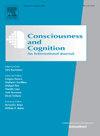对心脑问题的看法很重要:巴西精神科医生和心理健康研究人员的假设和实际含义
IF 2
3区 心理学
Q2 PSYCHOLOGY, EXPERIMENTAL
引用次数: 0
摘要
尽管很少被讨论,但了解心脑问题(MBP)对心理健康至关重要。我们的目的是探讨心理健康专业人员的MBP假设和实际意义。方法招募精神科医生和心理健康研究人员。直接和间接评估MBP观点(通过思维实验和临床小插曲)。结果214名参与者参与。大多数人(60.7%)认为精神是大脑的产物,但在身体复制实验后,精神特征的持久性比身体特征低。神经生物学病因与临床小插曲的归因与患者责任归因的减少有关,与心理病因相反。物质二元论与信仰自由意志和精神病因相关,但不否认神经生物学、心理学和社会病因。结论smbp假设影响病因、责任和自由意志的认知,强调了理解MBP对推进精神病学的重要性。本文章由计算机程序翻译,如有差异,请以英文原文为准。
Views on the mind-brain problem do matter: Assumptions and practical implications among psychiatrists and mental health researchers in Brazil
Objective
Despite being rarely discussed, understanding the mind-brain problem (MBP) is essential to mental health. We aimed to explore the assumptions and practical implications of MBP among mental health professionals.
Methods
We recruited psychiatrists and mental health researchers. MBP perspectives were assessed directly and indirectly (via thought experiments and clinical vignettes).
Results
214 participants participated. Most (60.7%) believed the mind is a product of the brain, however endorsed lower persistence of mental characteristics than physical after the body duplication experiment. Neurobiological etiology attribution to the clinical vignette was associated with reduced attribution of patient’s responsibility, the inverse for psychological etiology. Substance dualism correlated with belief in free will and spiritual etiologies without denying neurobiological, psychological, and social etiologies.
Conclusions
MBP assumptions influence perceptions of etiology, responsibility, and free will, highlighting the importance of understanding MBP for advancing psychiatry.
求助全文
通过发布文献求助,成功后即可免费获取论文全文。
去求助
来源期刊

Consciousness and Cognition
PSYCHOLOGY, EXPERIMENTAL-
CiteScore
4.30
自引率
8.30%
发文量
123
期刊介绍:
Consciousness and Cognition: An International Journal provides a forum for a natural-science approach to the issues of consciousness, voluntary control, and self. The journal features empirical research (in the form of regular articles and short reports) and theoretical articles. Integrative theoretical and critical literature reviews, and tutorial reviews are also published. The journal aims to be both scientifically rigorous and open to novel contributions.
 求助内容:
求助内容: 应助结果提醒方式:
应助结果提醒方式:


